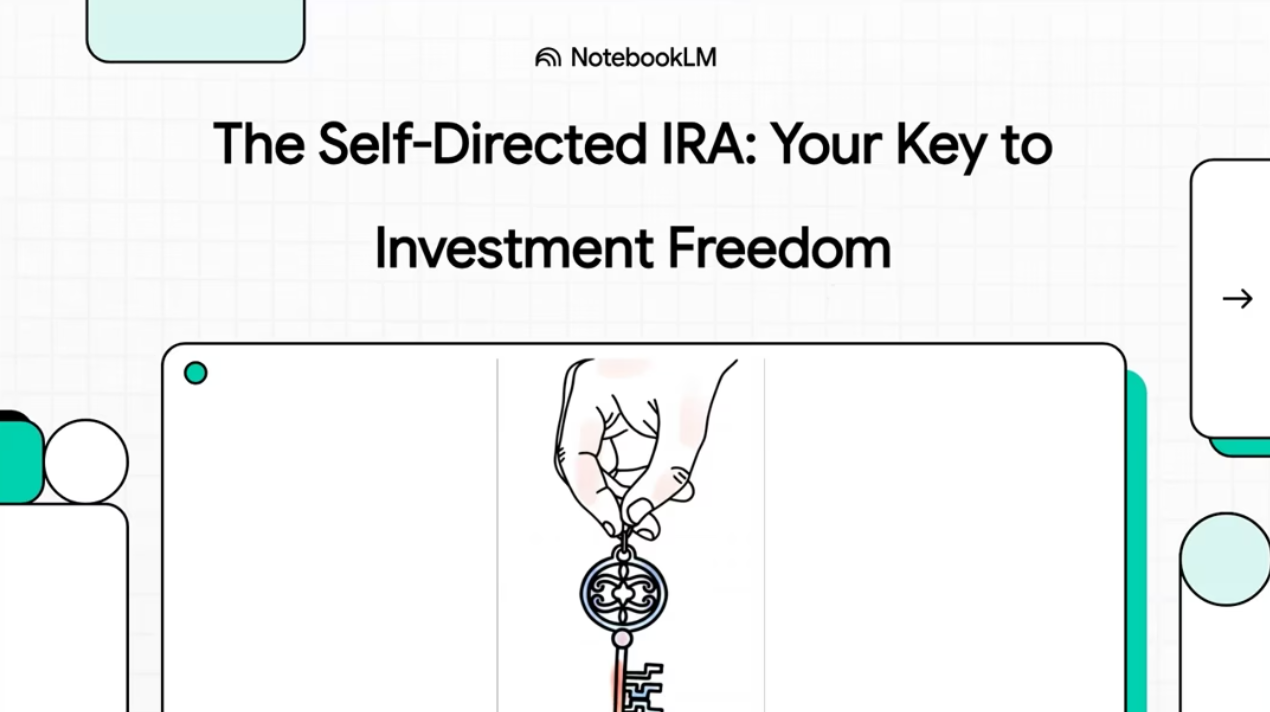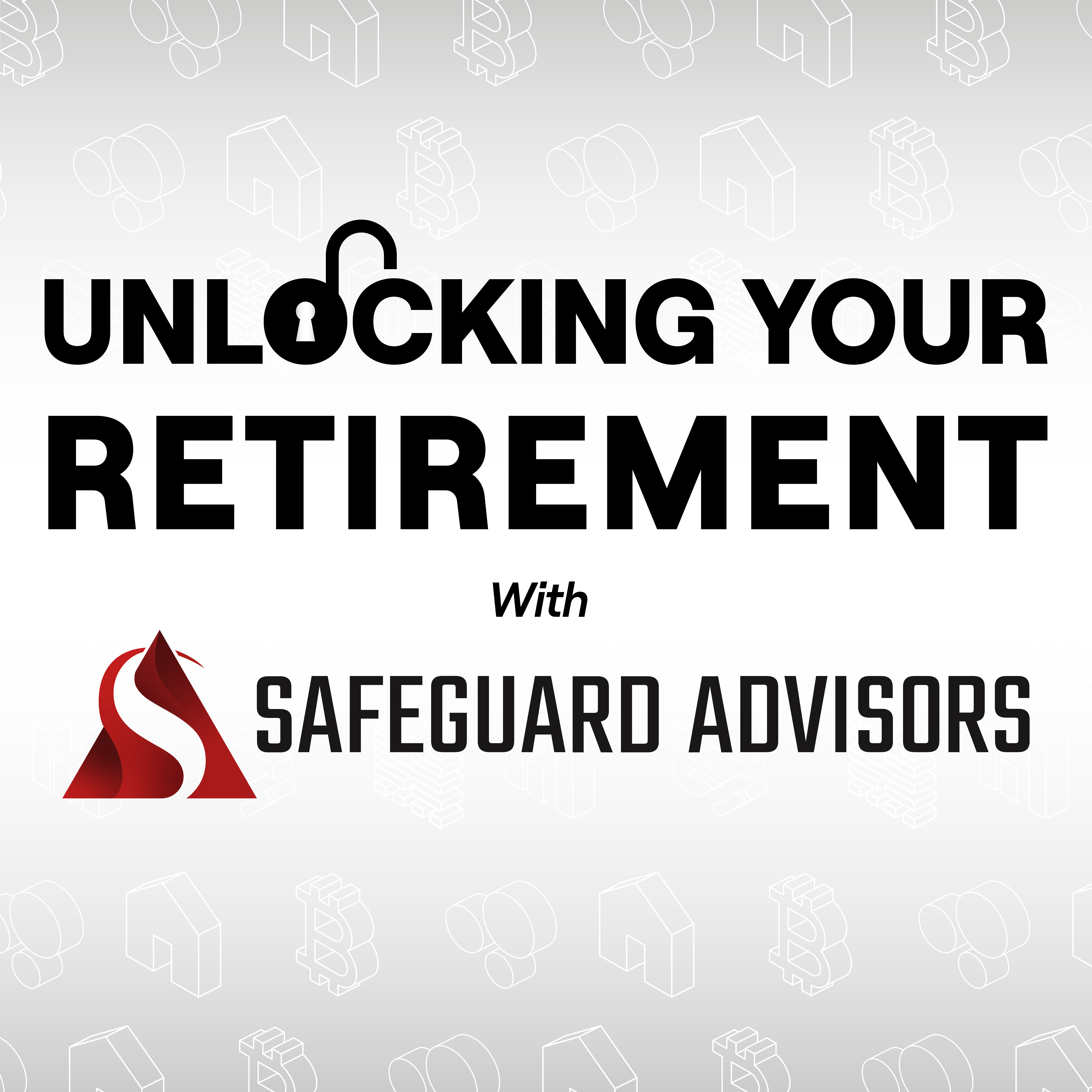Tips for Vetting a Property Manager for Your IRA Rental

Using a professional property manager can be a great way to maintain a rental property portfolio in your self-directed IRA or 401(k) plan. Staying hands-off is critical for IRA investors, considering the IRS rules against self-dealing that prohibit sweat equity.
While you can self-administer IRA-owned rental properties in a limited sense, relying on a property manager can provide benefits with respect to IRS compliance, simplicity, maximizing the value of your time, and leveraging the expertise of a licensed professional.
Having the right property manager makes all the difference when it comes to achieving success in growing your retirement portfolio via property investing. A good property manager will help you to get the most out of your IRA-owned properties. The wrong property manager can spoil the return of even the most promising property.
So how do you find the right property manager? That can be almost as important as finding the right property for your IRA.
Cast A Wide Net
Start your search by finding as many potential property managers as you can that serve the location you intend to invest in. Use the internet, but also reach out locally by networking with realtors, other investors, or even tenants if you have the opportunity to connect.
Local real estate investor clubs can be a good resource for this kind of network-based search. Title companies are also an excellent source of referrals. They see a lot of investor transactions, and tend to know who works with who, and who is doing a lot of business.
If you can identify a property management company that a lot of people are happy with, that is a good starting point.
Find Someone Who Serves Your Niche
Each neighborhood and property type is unique and attracts a different type of tenant. The skills and resources a property management firm brings to the table will need to align with the type of property you intend to hold in order to be a good fit.
Working with short-term-rental beach properties is very different from working with section 8 tenants (as an extreme example). Be sure the property manager you’re evaluating is familiar with the dynamics of the type of property you intend to invest in, and has the experience necessary to serve your specific needs.
Read the Reviews
Once you have identified a few property managers that may be a good fit and worth taking a closer look at, do some online research and see if there is feedback out there. See how long company has been in business.
If you can identify whether they company is a one-man show or a larger company, that can be helpful. Although depending on your needs, one type of provider may or may not be better suited.
When reading online reviews, be aware that a tenant’s perspective may be different than what you will have as a landlord. An evicted tenant is very likely to put a bad review online — but you have to take that with a grain of salt. If there are a large number of tenant reviews complaining about lack of service or communications, however, that could be a red flag.
After some preliminary research, you should be able to narrow down your search to a handful of providers that merit a closer look.
Systems = Service
One of the main reasons to engage a property manager is to place your investment in the hands of a professional and thereby leverage their experience.
A great way to judge whether you’ll see a benefit from a provider is to gauge the systems they use to run their business. A firm that has time-tested policies and procedures in place will generally be more robust over the long term.
Before even getting to critical questions such as pricing terms, it makes sense to ask about key junctures in a landlord tenant relationship. Some key questions in this area might include:
- What steps are involved in client applications and screening?
- What checklists are in place for tenant move-ins and move-outs?
- Are regular safety and maintenance inspections performed on properties?
- How are late rents dealt with and escalated?
- How are maintenance needs identified, resolved, and billed?
A secondary layer on this same avenue of inquiry is the systems used to manage the relationship with you as the property owner.
Communications and Reporting
If you have to call or email your property manager to check in on the health of your investment, that’s probably not a good thing.
This is the age of simple online systems for just about everything. If your management firm isn’t providing you with regular reporting, they should hop on their dinosaur and ride off into the sunset.
You should expect regular reports at the very least, and more likely some kind of online portal with a full set of reporting on rents paid, maintenance issues, etc.
Of course, having systems and using systems are two very different things. Be sure to ask questions that will help you to understand if the communications you can expect to receive will be proactive and current, or slow and spotty.
Personality and Temperament
Being a property manager is a people-oriented job. The ability to handle challenging situations, diffuse conflict, be politely firm, and generally navigate a variety of human interactions successfully is probably the most important skill a property manager needs to have.
As you interview a potential property manager, take time, ask questions, perhaps even try to push a few buttons to see how they respond. Sometimes the most important thing you can do is just listen, and do so with a focus on how the person on the other side of the conversation makes you feel. If they instill a certain confidence and ability to get things done, you may be onto something.
Pricing Model
We’ve held back from addressing the important topic of pricing model because if you focus on price first, you’re likely to miss out on what really matters in selecting a quality property manager.
That said, the cost of the service will be a very critical factor that impacts the performance of your investment property.
There are several layers of the cost interaction, and it’s important to understand what you can expect, and whether the pricing model supports performance of the property or incentivizes turnover.
Some of the most common fee components of property management include:
- Percent of monthly rents – generally 8-10% depending on the region
- Tenant move-in fee – often a full month’s rent
- Marketing costs, perhaps with a markup
- Turnover fees such as cleaning, replacing locks, etc.
- Lease renewal
- Maintenance charges, perhaps with a markup
- Eviction services
The single biggest revenue drains in a rental property are vacancies and tenant turnover. A contract that puts money in the property manager’s hands for these events can promote a relationship where turnover is part of the business plan.
Paying more for monthly services and reducing turnover related fees may have the opposite effect, as can a bonus of some kind for tenant retention and renewals of leases. Be sure to review the fee structure of the contract thoroughly and don’t be afraid to negotiate.
It can be a good exercise to run a sample case of a 3, 5, or 7-year property lifecycle, and estimate the total costs of management and turnover based on what the past performance of the property manger is.
If you speak with a few different management companies that serve a specific neighborhood, you should have a good idea of the typical turnover rate.
If the turnover rate estimate provided by the property manager you’re evaluating is significantly higher or lower than average, that can be in indicator to pay attention to as well. Are they really performing better than the average, or are they blowing smoke?
Maintenance & Inspection Policy
Understanding how a property manager handles the facility side of the property is also an important consideration.
A manager that has regularly scheduled maintenance and safety inspections will likely be more in-tune with the condition of a property. This can equate to proactive maintenance at a manageable cost, as opposed to reactive rehabilitation projects resulting in greater expense.
Relying on tenants to replace filters in the HVAC system can mean a 10-year life span on a piece of equipment that should last 15 years. Having your property manager make sure the filters are changed every 6 months makes that 15-year useful life more likely and can save thousands of dollars.
Sometimes there can be advantages in terms of responsiveness and cost if a management company has in-house maintenance, but this isn’t always necessary. As long as they have access to the right people to get the job done quickly and cost-effectively, it doesn’t matter if it is company provided or outsourced.
You’ll want to be sure to understand how 3rd party services are priced, and if there’s a markup.
The Bottom Line
When investing in real estate with your self-directed IRA, it all comes down to managing expenses and maximizing profitability.
Overpaying for poor property management that results in excessive tenant turnover and high-cost repairs won’t pay off. Obtaining a good service that represents value can result in a higher performing property.
Taking your time to evaluate several property managers can be well worth the effort if it helps you to find someone capable of being a productive asset manager for your IRA.
What our clients says about us
Quick answers to common questions
We’ll take you through a simple, step by step process designed to put your investment future into your own hands…immediately. Everything is handled on a turn-key basis. You take 100% control of your Retirement funds legally and without a taxable distribution.
YES! In 1974, Congress passed the Employee Retirement Income Security Act (ERISA) making IRA, 401(k) and other retirement plans possible. Only two types of investments are excluded under ERISA and IRS Codes: Life Insurance Contracts and Collectibles (art, jewelry, etc.). Everything else is fair game. IRS CodeSec. 401 IRC 408(a) (3)
It’s actually pretty simple. Early on, regulators let the securities industry take the lead in educating the public about retirement accounts. Naturally, brokers and banks promoted stocks, bonds, and mutual funds—giving the impression that those were the only allowed investments. That was never true... and still isn’t. You can probably guess why they kept the rest under wraps.
It is possible to use funds from most types of retirement accounts:
- Traditional IRA
- Roth IRA
- SEP IRA
- SIMPLE IRA
- Keogh
- 401(k)
- 403(b)
- Profit Sharing Plans
- Qualified Annuities
- Money Purchase Plans
- and many more.
It must be noted that most employer sponsored plans such as a 401(k) will not allow you to roll youraccount into a new Self-Directed IRA plan while you are still employed. However, some employers will allow you to roll a portion of your funds. The only way to be completely sure whether your funds are eligible for a rollover is by contacting your current 401(k) provider.
A Solo 401(k) requires a sponsoring employer in the format of an owner-only business. If you have a for-profit business activity – whether as your main income or as a side venture – and have no full-time employees other than potentially your spouse, your business may qualify. The business may be a sole-proprietorship, LLC, corporation or other entity type.
A self-directed retirement plan is a type of IRA or 401(k) that gives you greater control over how your retirement funds are invested. Unlike traditional accounts held at banks or brokerage firms that limit you to stocks, bonds, and mutual funds, self-directed plans allow you to invest in a wide range of alternative assets including real estate, private businesses, precious metals, cryptocurrency, and more.
These plans still follow the same IRS rules and maintain the same tax-deferred or tax-free benefits as conventional retirement accounts. The difference is simply in how and where you choose to invest.
No. Moving to a self-directed IRA or Solo 401(k) does not trigger any taxes, as long as your funds are eligible for rollover.
Self-directed retirement plans maintain the same tax-advantaged status as traditional plans offered by banks or brokerage firms. The key difference is flexibility—our plans are designed to give you greater control and allow for a wider range of alternative investments beyond stocks, bonds, and mutual funds.
A prohibited transaction is any action between your retirement plan and a disqualified person that violates IRS rules and can lead to serious tax consequences. Under IRS Code 4975(c)(1), prohibited transactions include:
- Selling or leasing property between your plan and a disqualified person Example: Your IRA cannot purchase a property you already own.
- Lending money or extending credit between the plan and a disqualified person Example: You cannot personally guarantee a loan your IRA uses to buy real estate.
- Providing goods or services between your plan and a disqualified person Example: You can’t use your personal furniture to furnish a rental property owned by your IRA.
- Using plan income or assets for the benefit of a disqualified person Example: Your IRA cannot buy a vacation home that you or your family use.
- Self-dealing by a fiduciary (using plan assets for their own benefit) Example: Your CPA shouldn't loan your IRA money if they’re advising the plan.
- Receiving personal benefit from a deal involving your IRA's assets Example: You can’t pay yourself from profits your IRA earns on a rental.
If a transaction doesn’t clearly fall within the allowed guidelines, the IRS or Department of Labor may review the situation to determine if it qualifies as a prohibited transaction.
Disqualified persons are individuals or entities that are prohibited from engaging in certain transactions with your IRA or 401(k). Doing so could trigger a prohibited transaction, which may result in taxes and penalties.
Here’s who is considered a disqualified person:
- You (the account holder)
- Your spouse
- Your parents, grandparents, and other ancestors
- Your children, grandchildren, and their spouses
- Any advisor or fiduciary to the plan
- Any business or entity owned 50% or more by you or another disqualified person, or where you have decision-making authority
These rules exist to prevent self-dealing and ensure your retirement plan remains in compliance with IRS regulations.
(Reference: IRC 4975)
Understanding and following these rules can be tricky, but it’s very doable. The best way to stay compliant is to work with professionals who specialize in self-directed retirement plans. They can help you navigate IRS guidelines and avoid prohibited transactions.
If an IRA holder is found to have engaged in a prohibited transaction with IRA funds, it will result in a distribution of the IRA. The taxes and penalties are severe and are applicable to all of the IRA’s assets on the first day of the year in which the prohibited transaction occurred.
Yes. While self-directed retirement plans allow for a wide range of investments, there are a few important restrictions.
You cannot invest in collectibles or life insurance contracts, and you must avoid prohibited transactions—activities that benefit you personally rather than the retirement plan. These include things like buying or selling property to yourself or family members, using plan assets for personal gain, or self-dealing in any way.
Violating these rules could cause your entire IRA to lose its tax-advantaged status. To protect your account, it’s essential to work with professionals who understand IRS regulations and can help you stay compliant.
This is a common misconception. In many cases, professionals may simply be unfamiliar with self-directed retirement plans, as they fall outside their usual scope of work. CPAs and tax preparers are trained to file taxes, not necessarily to advise on alternative retirement strategies. Financial advisors and brokers often work for firms that focus on traditional investments like stocks and mutual funds—and may not benefit from or support alternative options like real estate or private lending.
Self-directed retirement investing is legal under IRS rules—but like any specialized area, it requires working with professionals who understand how it works.
The IRS has rules in place to make sure your IRA is used only for the exclusive benefit of the retirement account—not for personal gain or to help family members. These rules can get complicated because there are many ways a conflict of interest can occur, even unintentionally.
For example, if your IRA buys a house and rents it to your mother, you might be reluctant to evict her if she stops paying rent. That emotional connection creates a conflict between what’s best for your IRA and your personal relationships, something the IRS aims to prevent.
These rules help ensure your retirement account stays compliant and protected. (See IRC 408)
Yes. Most tax-deferred retirement accounts—such as Traditional IRAs, old 401(k)s, 403(b)s, and TSPs—can be rolled over into a self-directed IRA or Solo 401(k), depending on your eligibility. Roth IRAs cannot be rolled into these accounts.
You can contribute directly from earned income, subject to annual IRS contribution limits. The method and amount depend on the type of plan you have (e.g., Solo 401(k) vs. IRA).
To take a distribution, you'll request funds through your custodian or plan administrator. Distributions may be taxable depending on your account type and age. Early withdrawals may be subject to penalties.
For 2025, the Solo 401(k) max contribution limit is $81,250 if age 60-63, $77,500 if age 50-59 or 69+, and $70,000 if under 50. Traditional and Roth IRAs have a limit of $7,000 ($8,000 if age 50+). Limits are subject to IRS adjustments.
Yes. IRA contributions are typically due by your personal tax filing deadline (e.g., April 15). Solo 401(k) contributions follow your business tax filing deadline, including extensions.
IRS reporting requirements vary depending on the type of self-directed retirement plan you have. Here’s a quick breakdown of what you need to know
Please note: Our team can help you understand what’s required for your specific account, but we don’t provide tax or legal advice. We always recommend working with a qualified tax professional to ensure full IRS compliance.
Self-Directed IRA (Traditional or Roth)
- Form 5498 – Filed by your custodian each year to report contributions, rollovers, and the fair market value (FMV) of your account.
- Form 1099-R – Issued if you take a distribution or move funds out of your IRA.
- Annual Valuation – You'll need to provide updated FMV for any alternative assets held in the account, such as real estate or private placements.
Solo 401(k)
- Form 5500-EZ – Required if your plan assets exceed $250,000 as of year-end. Must be filed annually by the plan participant.
- Form 1099-R – Required if you take a distribution or roll funds out of the plan.
- Contribution Tracking – Keep records of employee and employer contributions. These are not filed with the IRS but may be needed for tax reporting or audits.
SEP IRA
- Form 5498 – Filed by your custodian to report contributions and FMV.
- Form 1099-R – Filed by your custodian. Issued for any distributions.
- Employer Contributions – Must be reported on your business tax return (and on employee W-2s, if applicable).
Health Savings Account (HSA)
- Form 5498-SA – Filed by your HSA custodian to report contributions.
- Form 1099-SA – Filed by your HAS custodian. Issued for any distributions.
- Form 8889 – Must be included with your personal tax return to report contributions, distributions, and how funds were used.







